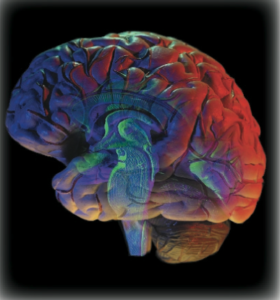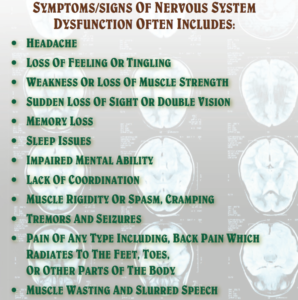Neurological Disorders
-

DR. MICHAEL WALD, THE BLOOD DETECTIVE
What are some common neurological disorders? Memory loss,/dementia (Alzheimer’), Parkinson’s disease, pain syndromes, fibromyalgia, multiple sclerosis, seizures, neuropathy and ALL other neurological problems have a nutritional basis.
-
What are some common neurological symptoms? Pain, numbness and tingling, feeling of bugs crawling on your skin, memory loss, lack of muscle powder, coordination and balance, difficulty with speech, vision and hearing, headache, feeling of detachment, anxiety, depression and others.
If you are suffering from a disease of your nervous system – you have come to the right place for nutritional support.
HOLISTIC NEUROLOGY
Holistic neurology is a term coined by Dr. Wald to describe the thoughtful integration of conventional neurologic theory and practice interwoven with nutritional and natural health care approaches. Conventional neurologists rely on careful ex- animations, various tests and medications as their primary tools for helping their patients. Dr. Wald’s Holistic-Neurology approach includes these conventional techniques and incorporates naturally- oriented choices including…
A NEUROLOGIC-NUTRITIONAL CONSULTATION AND EXAMINATION

The brain can repair! It’s neuroplasticity can be improved with the right foods, vitamins, minerals, herbs, fatty acids and phytonutrients.
As a traditionally trained neurologist with a substantial base in natural medicine, Dr. Wald provides his patients with…
-
More time to explore all aspects of your health – after all, your nervous system is intimately connected to, and influences, virtually every other organ system
in the body. -
A holistic-perspective that considers the impact of one’s environment, genetics, lifestyle, and nutrition upon the health of your nervous system.
NUTRITIONAL TESTS
-
NUTRITIONAL TESTING ALLOWS FOR THE IDENTIFICATION OF NUTRITIONAL DEFICIENCIES, IMBALANCES AND GENETIC ISSUES THAT MAY HAVE IMPACTED YOUR CURRENT NEUROLOGICAL ISSUE(S), AND MIGHT AFFECT YOUR RECOVERY.
-
The possibility of either discontinuing medications, reducing medication dosages and fewer side-effects.
-
Exploring causes of neurologic issues, specific for each person, including:
• Hormonal imbalances
• Infections (viral, bacterial, fungal and parasitic) • Toxic heavy metals and other toxins
• Nutritional deficiencies, toxicities and imbalances • The impact of years of poor nutrition, aging,medications and malabsorption
• And many other individualized factors.
-
-
Dr. Wald’s brand of neurology requires careful assessment of one’s nutritional status. Conventional neurologists do not require nutritional tests as their treatments are largely symptom based. In fact, many diseases and symptoms of the nervous system are known to either be caused by or improved through the use of specific nutritional approaches. In spite of this fact, nutritional problems are often unrecognized and therefore untreated by conventional neurologists. Dr. Wald believes that correcting underlying nutritional problems allows for —

From memory loss to neuropathy and pain, nutrition and natural medicine provides the healing ingredients providing the potential for the nervous system to heal.
Can diet and nutrition help to heal your neurological problem(s)? The honest answer is maybe. Not all neurological problems respond alike to nutritional (dietary and nutritional supplement) efforts.
Here is what Dr. Wald’s decades of experience, and his review of the medical research, suggests regarding how a large number of neurological issues (see lower down on the page) respond to nutrition:
-
The nervous system is made up of fatty acids – the correct balance of the right omega 3 fatty acids may have promote healing, otherwise known as neuroplasticity, of the brain and spinal cord.
-
The right combination of amino acids and proteins may help restore unfavorable neurotransmitter levels in the nervous system. Neurotransmitters are responsible for a large number of essential processes in the brain and rest of the nervous system. Memory, mood and control of motor and sensory function are just some of the processes dependant upon neurotransmitter balance.
-
Some vitamins and minerals act as coenzymes in the nervous system meaning that they are essential for the function of chemical reactions in the brain. Without the right types and levels of vitamins and minerals neurotransmitter reactions, neuroplasticity process and other essential functions would be adversely affected causing a large number of neurological problems.
-
Phytonutrients are natural compounds that are derived from plants. Many phytonutrients have been studied to promote nervous system repair (neuroplasticity), reduce inflammation, promote motor and sensory healing of nerve cells and favorably impact many other aspects of nervous system healing.
-
Heavy metals such as aluminum have been associated with Alzheimer’s disease. Other metals such as mercury and cadmium, iron, copper and zinc can have extremely unfavorable effects upon the nervous system and rest of the body. Removal of these metals, if present and if early enough, may help the nervous system recover from their toxic effects.
-
Viruses such as Epstein bar and even parasites, bacteria and fungi have been associated with neurological degeneration. Most of the time, as Dr. Wald’s experience has shown, we are exposed to infections sometimes very early on in our lives, and decades later their unhealthy effects manifest. Multiple sclerosis for example is known to be trigger by Epstein bar as the most common viral cause. Many other neuro-immune conditions can be triggered by infections only to show up in one’s life suddenly and often without warning. Improvements in the immune systems and providing the appropriate nutritional supports for the individual often help the healing process.
-
Nutrition and medications are a common combination in people that seek out Dr. Wald for help. “It is not appropriate to just stop taking one’s medications while embarking upon natural healing efforts. Only once nutritional effects are well on their way, and with the cooperation of the prescribing doctor (of medications), should medications be adjusted. Some people come to see me wanting to avoid medications, others wanting to reduce unwanted side-effects and yet others are ok with taking medications along side of focused dietary and nutritional supplement efforts. I’m here to support the desires and educated decisions of all of my patients.”

Exercise, but not just any exercise, must be carefully considered depending upon the type of neurological issues that presents including the extent of symptoms – and both the dietary and nutritional supplement efforts must keep pace with the level of exercise. Over-exercise can worsen some neurological problems while exercise in another condition is favorable. The exercise much focus on at least these important goals:
-
exercise to improve balance
-
exercise to improve strength
-
exercise to improve coordination
-
exercise to promote lean body mass retention and gains
-
exercise to reduce fat and increase metabolic rate (but not always)
-
exercise to improve core strength
-
exercise to promote energy
-
exercise to improve mental focus and attention
-
-
Blood flow, trauma and inflammation & autoimmune conditions may all play a role in both causing or worsening neurologic problems. Dr. Wald is here to help you uncover the causes(s) of your health issues and to develop a do-able plan of action so that you can live your life again.
 Previous Post
Previous Post Next Post
Next Post